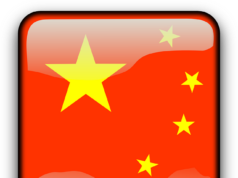China’s top business man is visiting Germany. Shortly before the start of the G20 summit in Argentina, he used the time to meet in Berlin with Chancellor Angela Merkel, Minister of Economic Affairs Peter Altmaier (both CDU) and Finance Minister Olaf Scholz (SPD). At a China conference of the Hamburg Chamber of Commerce he promoted closer cooperation between Europe, Germany and China.
Liu’s appearance in Hamburg had only recently become known. Initially, he was told that he would be flying to Washington to negotiate a possible trade dispute before the meeting between China’s President Xi Jinping and Donald Trump at the G-20 summit.
However, an early solution seems unlikely in the meantime. In the US media, Donald Trump announced on Tuesday that he would raise existing US $ 200 billion in Chinese goods to 25 percent of the current 10 percent. He also threatened to impose special tariffs on the remainder of China’s $ 267 billion worth of imports.
Already at the summit of the Asean states in Singapore and the meeting of the Pacific Rim (Apec) middle of the month tensions between the two great powers had come again. Also on Tuesday, Liu attacked the US president’s policy without naming his name: „We believe that protectionist and one-sided approaches do not solve trade problems.“ The story shows that tariff increases only lead to a recession. „These will only bring more economic uncertainty to the world,“ Liu said.
Liu’s visit is an attempt to gain an ally for dealing with Trump. Especially Germany is an important partner for China. In order to modernize its economy, the country needs German know-how. Washington has made it harder for the country in recent months to acquire technology through acquisitions. Now, Beijing fears that China might face similar things in the EU. Brussels and Berlin are currently working on regulations restricting takeovers by foreign companies in Europe.
The background to this is the numerous investments made by China in Europe and the USA in recent years. Twelve billion euros flowed alone in 2017 to Germany. A study by the Bertelsmann Foundation this year showed that two-thirds of all Chinese takeovers from 2014 to 2017 can be assigned to one of the ten key sectors in which China intends to climb to the top in the years to come. The ambitious promotion plans had called many observers abroad only on the plan.
Lack of market access is also a point of conflict with the EU
In its strategy paper „Made in China 2025“, Beijing names not only sectors in which it uses national champions, but also how they should in the long term oust foreign companies from the market. The fact that Xi Jinping’s ambitious industrial and investment policy may have provoked the trade conflict with the US has also triggered criticism in China. The most prominent dissenting vote was the son of Deng Xiaoping, the architect of the Chinese opening policy. It is important, according to Deng Pufang, „to know their own strengths and weaknesses and to avoid overconfidence“.
Whether or not Lius‘ visit was worthwhile will be demonstrated on Friday in Buenos Aires. Lack of market access for foreign companies is not just a point of conflict between the US and China. The EU also criticizes Beijing for the unfair market conditions. China has repeatedly confessed to open markets. „But so far little has happened,“ says Angela Stanzel from the think tank European Council on Foreign Relations. Beijing shows itself by the trade conflict „willing“ – but much is „too little and too late.“
The same is true of Reinhard Bütikofer of the Greens in the European Parliament. If China wanted to send positive signals to the EU, it could finally name a clear positioning in the negotiations on the joint investment agreement, said the politician on the sidelines of the conference in Hamburg. „But those who do not cheat themselves know that China does not stand for free trade.“ The only thing the EU receives from Beijing are „well-sounding non-binding sentences“.



